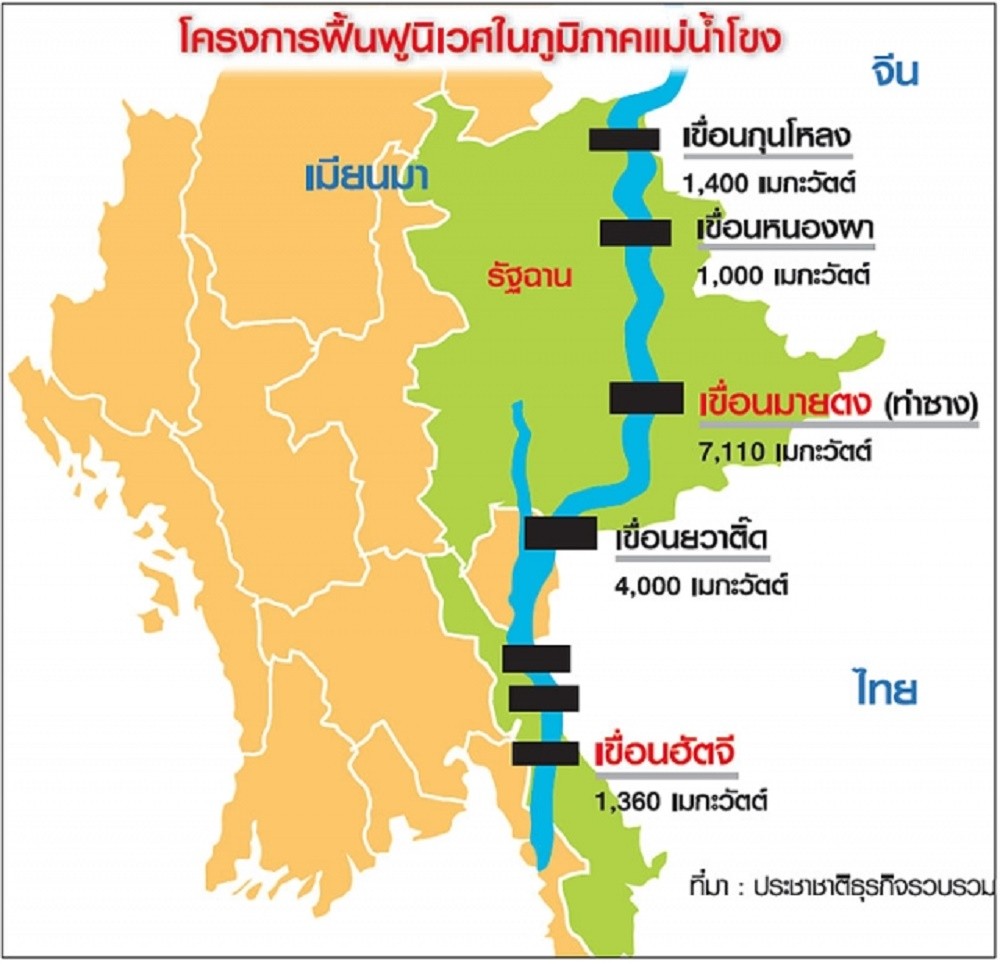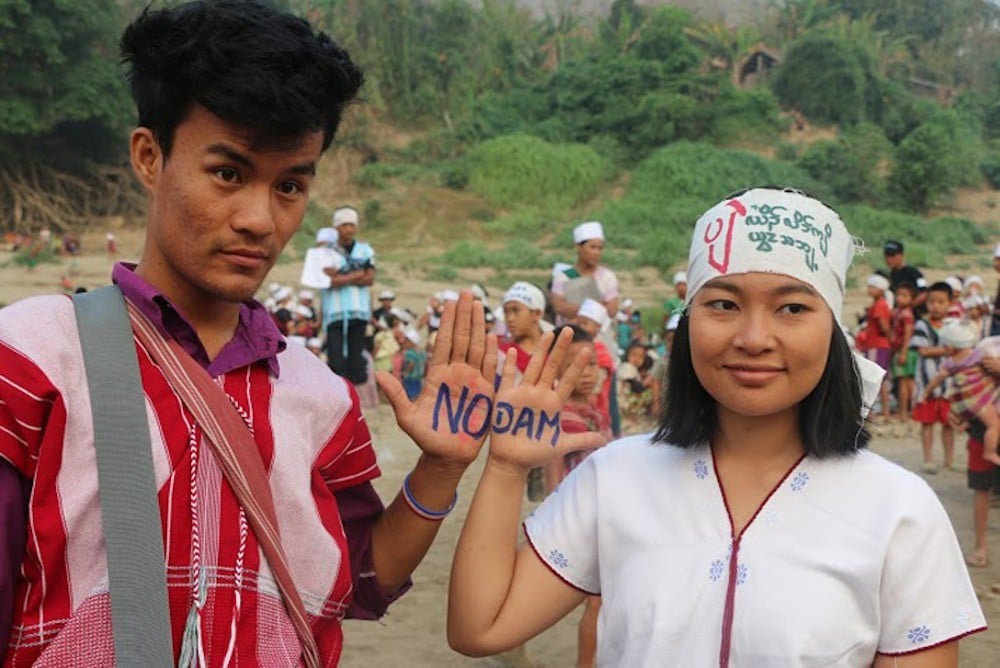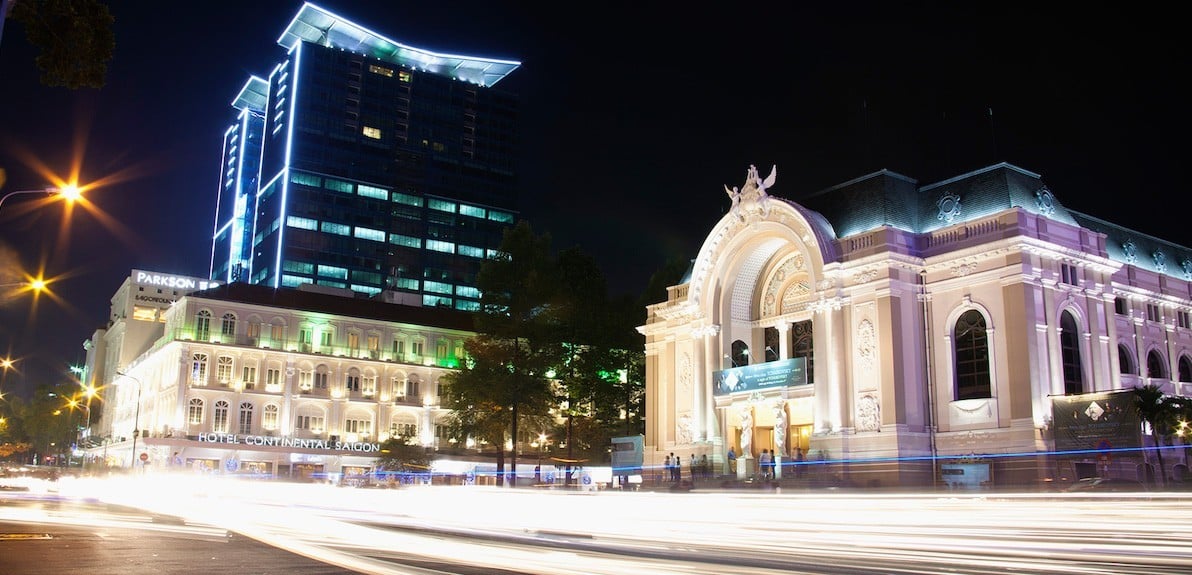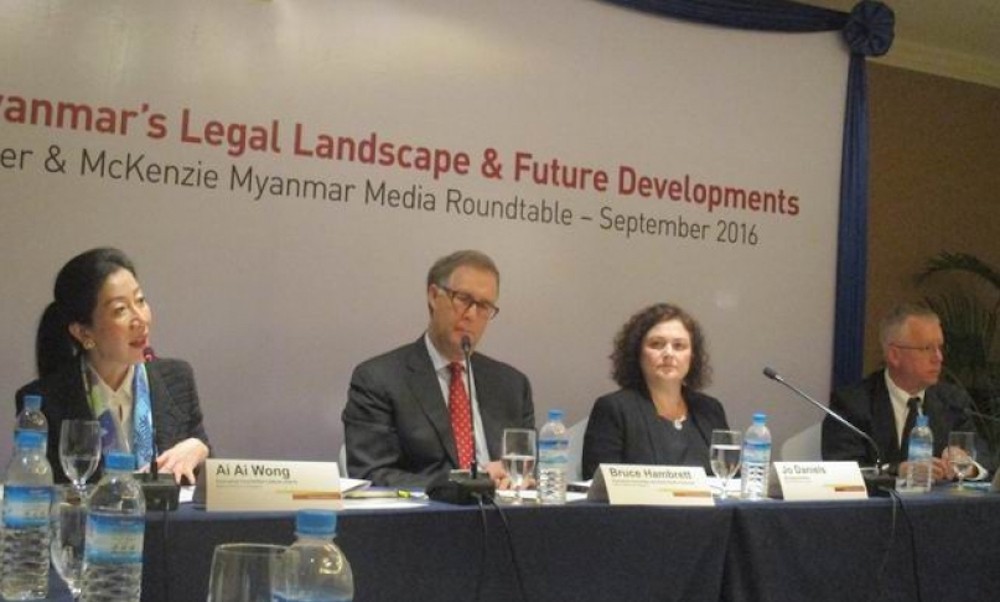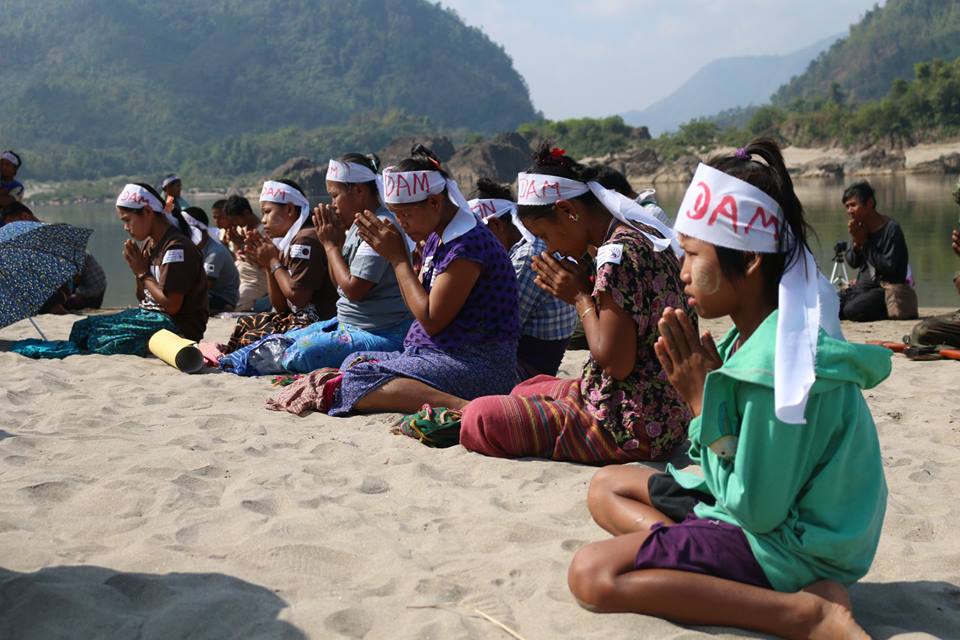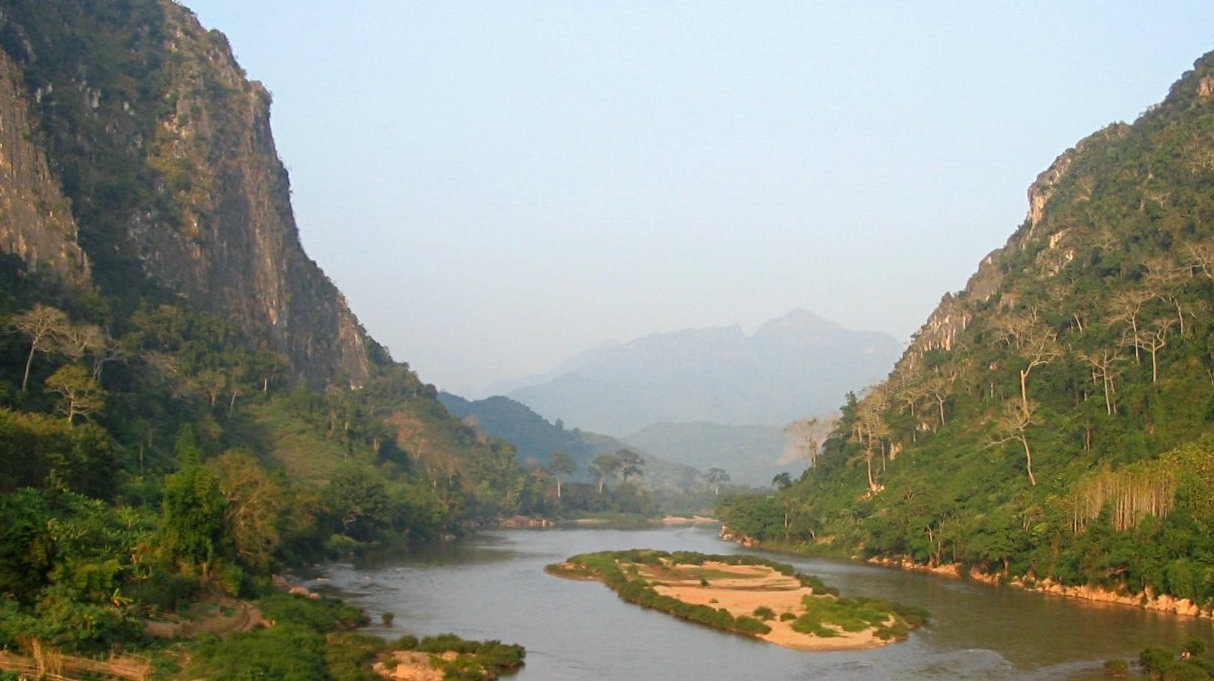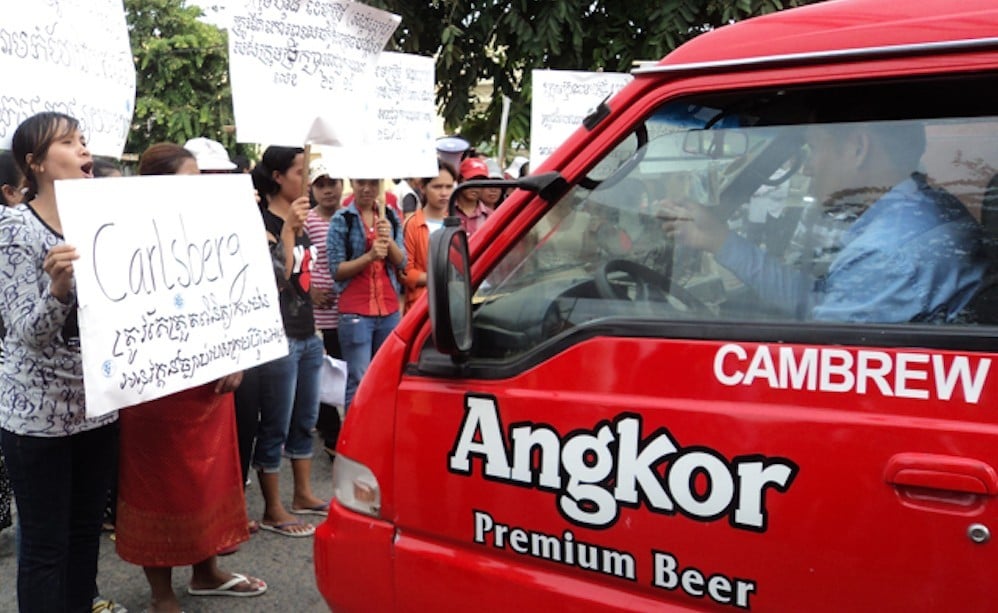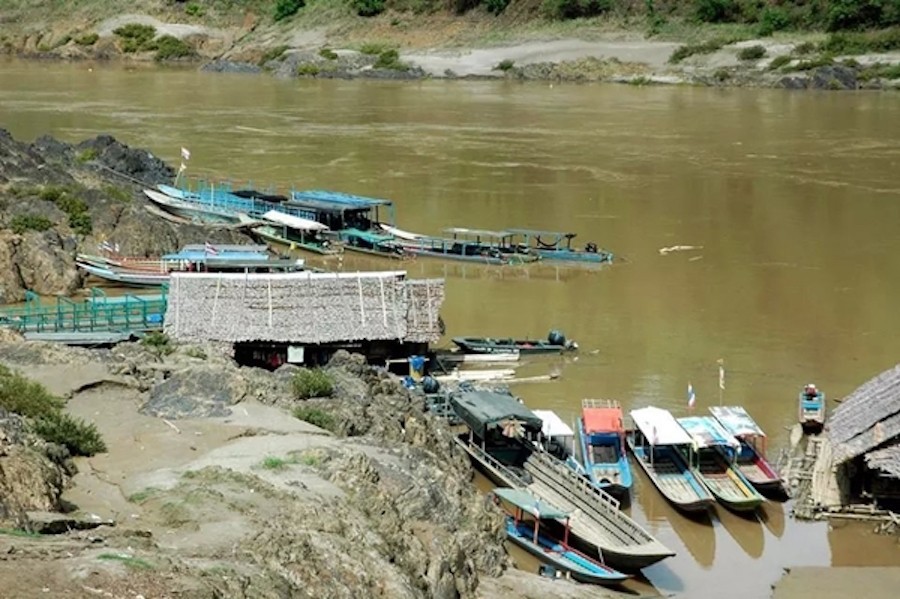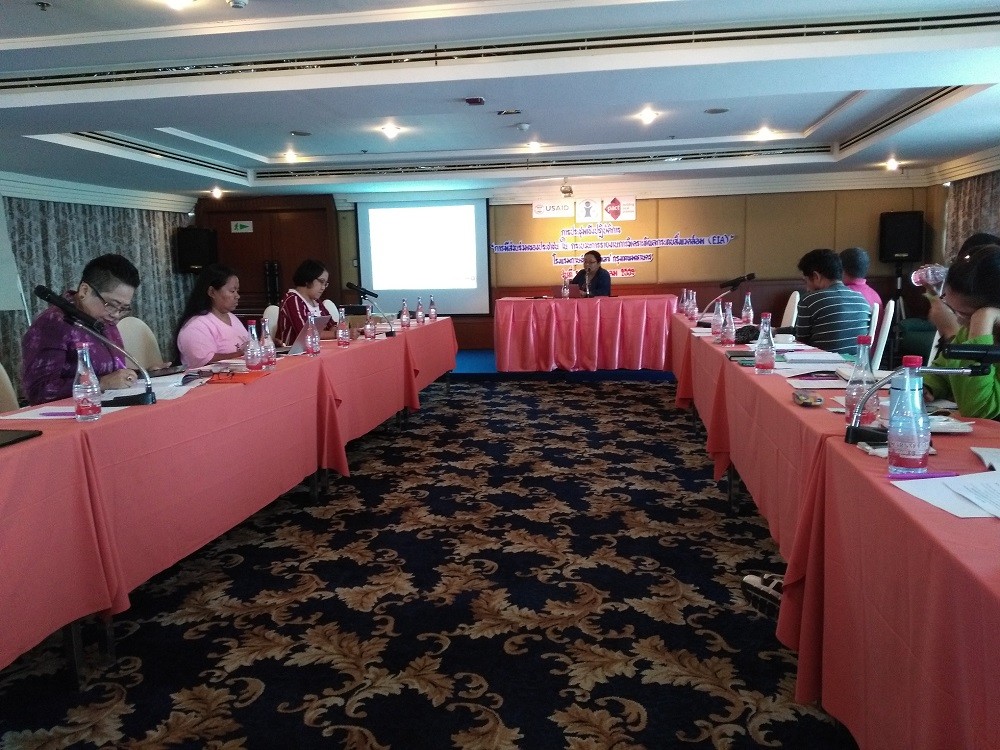Thailand plans to dust off Hatgyi Dam in Myanmar and divert “surplus” water to Bhumipol Dam to alleviate drought. EGATi is eager to invest more than 100 billion baht in Hatgyi project. As for Mong Ton Dam project, EGATi plans to invest over 300 billion baht but it still waits for Myanmar government’s approval after the redesign to lower impacts on surrounding communities.
Category: Region
Selected environmental stories from media outlets in the Mekong region and beyond.
Ethnic Activists Voice Alarm Over Salween Dams
Ethnic Shan, Mon and Karenni environmental activists have voiced strong concern over alleged government plans to push ahead with hydropower dams on the Salween River, which they believe would destroy the livelihoods of ethnic communities.
At a press conference in Rangoon on Wednesday, Shan environmentalist Sai Khur Hseng of the Sapawa organization claimed that U Htein Lin, permanent secretary of the Ministry of Electricity and Energy, said during a closed-door meeting in Naypyidaw in August that to fulfill Burma’s energy needs, planned dams should proceed on the Salween [also known a the Thanlwin] River.
Southern Vietnam faces power starvation
Southern Vietnam, which is home to commercial hubs like Ho Chi Minh City and manufacturing clusters such as Dong Nai and Binh Duong, may face more power shortages from 2017.
The country’s total power output is likely to fall short of the south’s demand by 10-15 percent, said Duong Quang Thanh, chairman of state monopoly Electricity of Vietnam (EVN).
The state utility plans to run more power plants on diesel to produce about 5 billion kilowatt-hours per year starting from next year to supplement supplies in the south, Thanh added.
New Myanmar investment law is the ‘right move’
The new law, a consolidation of existing Myanmar Citizen Investment Law and the Foreign Investment Law, introduces a new form of approval called MIC Endorsement, in addition to issuing MIC permits.
If a company’s business activities do not fall under one of the restricted categories, it will not require an MIC permit to do business in Myanmar. Instead, they can apply for an MIC endorsement, which will provide the same benefits as an MIC permit such as long-term lease and tax incentives.
Report Details Harm Salween River Dams Could Cause
Mi Ah Chai said: “The livelihood of the people in the delta area and the ecosystem of the river can be damaged by this project. So, we demand that the government halt all the dam projects; respect the objections of the ethnic people living along this river and the social organisations calling for the conservation of the Salween River; and prevent this project from affecting the peace process.”
The 87-page report details the background of the Salween River, the construction of the dams on the river, the ecosystem of the Salween River delta, the dams’ impact on the communities who depend on the delta eco system and public awareness of the dam projects.
Dam the Mekong, Thailand Buys More Hydroelectricity from Laos
A power purchasing agreement was signed on Tuesday, during Thai Prime Minister General Prayuth chan-Ocha’s visit to the Prime Minister of Laos Thongloun Sisoulith, while attending the 28th and 29th Asean Summits and related meetings from September 6-8 in Vientiane.
Thailand has increased its purchase of electricity from 7,000 to 9,000 megawatts from Laos this year to ensure sufficient supply and meet rising demand.
Video Calls for Angkor Beer Boycott Over Mekong Dam
Community members worried about a major dam being constructed in Laos released a video this week appealing for a boycott of Cambodia’s number one beer manufacturer, Angkor Beer.
“Stop Don Sahong, Boycott Angkor Beer” claims the 32 meter-high dam now under construction will affect the flow of the Mekong River, destroy fisheries and farmland in Cambodia and the lower Mekong, and affect millions of people in neighboring countries—all to generate only 260 MW of hydroelectricity. Of particular concern is the loss of of the last of the Irrawaddy dolphin’s Mekong habitat.
Mon group opposes dam planned for Salween River
Mon activists yesterday attacked dam projects slated for the Salween River, releasing a report about the potential negative impacts.
“Given the recently renewed plans by the Myanmar government and Thai investors to build the controversial Hatgyi dam, our downstream communities share extreme concerns with all the other communities along the Salween about the impact of the dam on our livelihood and the environment,” said Mi Ah Chai, one of the lead researchers on the report by the Mon Youth Progressive Organisation.
The announcement that 1360-megawatt Hatgyi project would be resumed was made on August 12 by Ministry of Electric Power permanent secretary U Htein Lwin.
Officials committed to Dawei
Thai officials and their Myanmar counterparts remain committed to the long-awaited Dawei megaproject, with the Myanmar-Thailand Joint High-Level Committee (JHC) and the Joint Coordinating Committee (JCC) to be set up soon to foster development.
Porametee Vimolsiri, secretary-general to the National Economic and Social Development Board (NESDB), said the recent joint ministerial meeting held on Aug 15-16 in Myanmar agreed to revitalise the role of the JHC and the JCC to rev up the multibillion-dollar project.
New sets of the two committees, which stalled before Myanmar held a general election on Nov 8 last year, are to be established soon.
Community EIA Meeting in Thailand: “Any effort to improve participation in EIA should be encouraged”
USAID-supported Mekong Partnership for the Environment (MPE) is strengthening Thai communities’ knowledge on Environmental Impact Assessment (EIA) processes for large-scale development projects that may have impacts on the environment and their communities.


